Nine Foods Never To Eat Again
Variety is the key to a healthy eating. Dietitians recommend a balanced diet emphasizing fresh fruits and vegetables, whole grains, lean proteins and legumes. Most people will also indulge in an occasional treat, perhaps a dessert, a salty or sugary snack or glass of wine or beer with dinner.
Unless you are struggling with a medical condition or completely sedentary, one small unhealthy snack a day, such as a single cookie, will not completely ruin your health. However, not all unhealthy snacks are equal. Some are worse for you than others.
Below is a list of nine foods or food ingredients that are so bad for you that you should never eat them again.
1. Trans Fats

While natural vegetable oils such as olive oil can actually be good for your health in moderate quantities, artificial trans fats have no redeeming features. Manufactured by adding hydrogen to vegetable oils, they appear on ingredient lists as hydrogenated vegetable oils.
Trans fats do more than just make you fat. They increase the amount of bad cholesterol (low density lipoprotein or LDL) in your blood and decrease the amount of good cholesterol (high density lipoprotein or HDL). Trans fats increase your risk of heart disease, stroke and type 2 diabetes.
Many companies use trans fats in packaged stick margarine, fried foods and baked foods.
2. High Fructose Corn Syrup (HFCS)
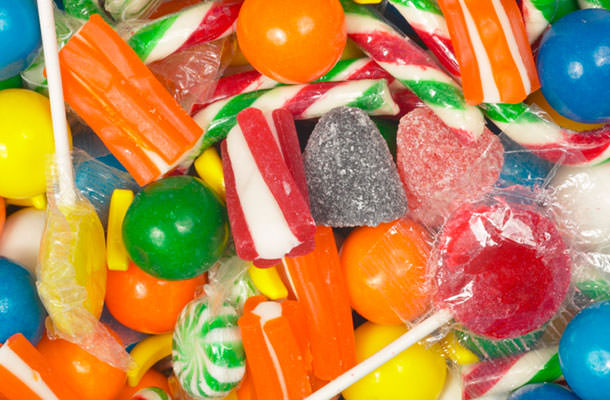
Too much refined sugar is bad for you. Not only can added sugar in your diet make you fat, it can also contribute to metabolic syndrome, type 2 diabetes and high triglycerides. Food companies can mask how much sugar their products actually contain by using several different sugars in a product to bury those sugars at the end of the ingredient list.
Another issue is that manufactured high fructose corn syrup is metabolized slightly differently than naturally occurring sugars, and may create insulin spikes and other adverse effects. Although additional research still needs to be done to confirm whether HFCS is worse for you than other sugars, play it safe by avoiding sugar-laden highly processed foods.
3. Sugary Drinks
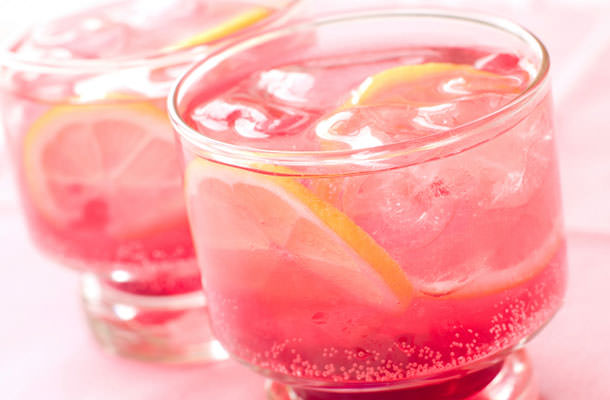
Whether they are called sodas, soft drinks, energy drinks, sweetened teas or fruit juice cocktails, the sugary drinks that contribute over a third of the extra sugars in diets of many developed countries are associated with a variety of adverse effects, including tooth decay, obesity, cardiovascular disease and some cancers.
A 600 ml (2.5 cup) bottle or can of a sugary drink a day add ups to 23 kilograms (50 pounds) of sugar a year. Whether your concern is your figure, your teeth, or your health, skip the sugary drinks and enjoy a glass of water, non-fat milk, soy milk, or plain tea or coffee instead.
4. Diet Sodas
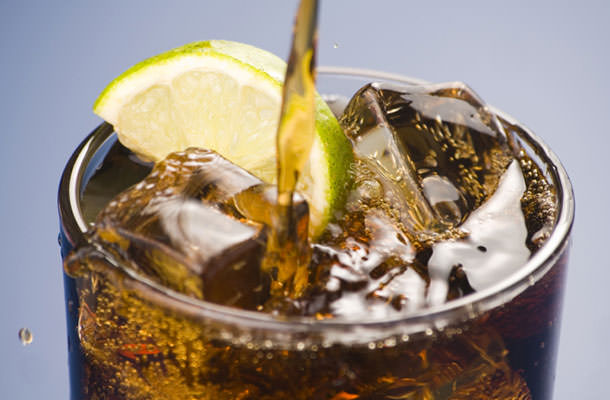
Replacing sweetened soft drinks with diet soda seems like a smart move, because it reduces the amount of sugar in your diet. Unfortunately, diet sodas are just as bad for you as sweetened ones. Paradoxically, the incidence of obesity is just as high in people who drink diet sodas as those who drink regular ones.
The acid in diet soda, just like that in regular soda, injures your teeth and the phosphorus can harm your bones. The artificial sweeteners may also harm your kidneys and the BPA from the cans can interfere with reproductive hormones.
For a low-calorie fizzy drink, substitute fizzy mineral water with a slice of lemon or lime.
5. Toaster Pastries
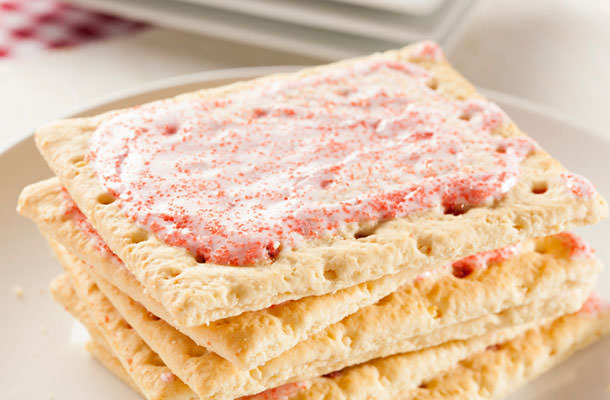
A healthy breakfast, with a balance of lean protein and complex carbohydrates, gives you the fuel your body needs to get started and keep going in the morning.
It is tempting to hit the snooze button a few times and grab a convenient toaster pastry that you can eat on the run rather than preparing a hot breakfast.
Unfortunately, these innocent-looking convenience foods pack a hefty dose of trans fats as well as enough sugar to make your blood sugar spike early and crash by mid-morning.
For a quick and healthy breakfast, prepare hard-boiled eggs the night before or make a sandwich of whole-grain bread and low-fat cheese, peanut butter or hummus. Add a banana or apple for no-fuss fiber and vitamins.
6. Sugary Breakfast Cereals
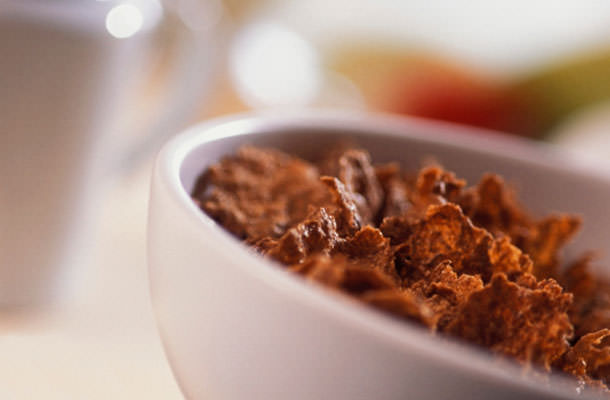
A bowl of cereal with low-fat or soy milk can be a healthy, nutritious way to start your day, blending lean protein with whole grains. Unfortunately, not all cereals are created equal. A 100-gram serving of a sugary breakfast cereal can contain anywhere from eight to twelve teaspoons of sugar, the equivalent of two or three doughnuts.
Read the ingredient lists and nutritional information of cereals carefully, choosing ones that contain mainly whole grains rather than sugars and fats. Even better, make your own oatmeal, adding raisins and nuts for extra flavor and nutrition.
7. Alcopops

Moderate consumption of alcohol, at a level of no more than one drink a day, may actually improve your cardiovascular health, but heavier drinking has many harmful effects. If you do choose to drink, though, stick with a single serving of unmixed alcohol, such as a bottle of beer or glass of wine.
Alcopops, highly sweetened, often caffeinated, alcoholic beverages are the worst possible drinks to choose, and not just because of the effect of all those calories on your waistline. Because the alcohol taste is masked with flavorings and sweeteners, it is easy to underestimate their alcohol content and overindulge.
Moreover, the caffeine and sugar make you feel more alert, temporarily camouflaging the effects of the alcohol. The net effect is that alcopops often lead to binge drinking.
8. Shelf-Stable Condiments
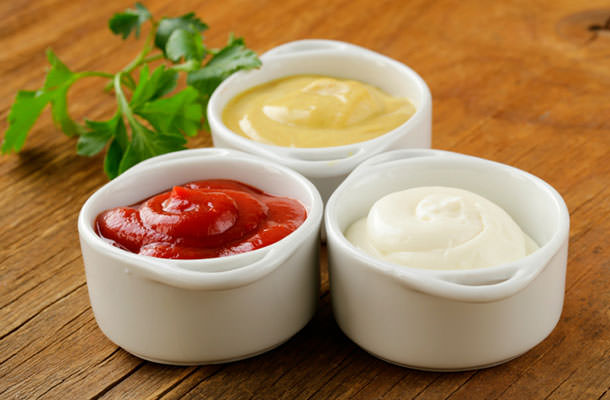
The individual packets of ketchup, mustard, salad dressing or relishes that you find in fast-food restaurants are known in the industry as “shelf-stable condiments,” meaning that they can be stored safely at room temperature.
The contents of these packets are engineered with preservatives, stabilizers, trans fats, salt and various chemicals to keep them stable, some of which are definitely bad for your health and others of which may have adverse long-term effects.
9. Processed Meats
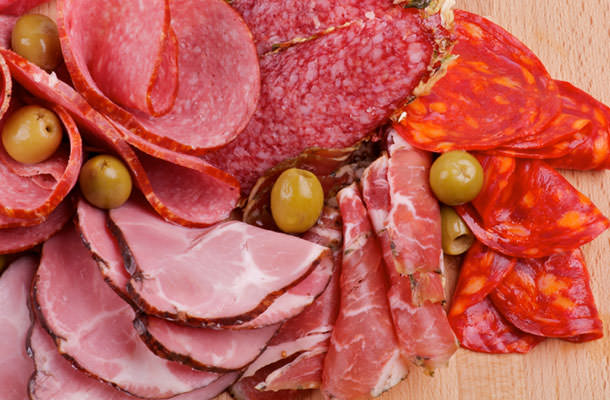
Processed meats, including lunch meats, bacon and hot dogs are filled with artery-clogging saturated fats.
Add a high salt content and nitrates used as preservatives, and you have, in a single package, a food type that increases your risk of obesity, cardiovascular disease, high blood pressure and certain cancers.












